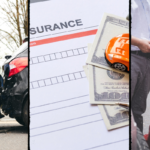
The Ultimate Guide to Finding the Cheapest Car Insurance and contact numbers in the UK

10 Top-Rated Appetite Suppressants for Weight Loss
Ultimate Guide to Vehicle Ownership and Operation Information on GOV.UK
The GOV.UK website serves as an essential resource for UK residents seeking information on vehicle ownership, operation, and legal responsibilities. This comprehensive guide explores key sections, including vehicle tax, MOT requirements, insurance guidance, and legal obligations for drivers. Whether you’re a new car owner, a seasoned driver, or simply looking to stay informed about UK vehicle laws, this article will walk you through everything you need to know.
Key Sections on GOV.UK for Vehicle Information
- Vehicle Tax
- MOT (Ministry of Transport Tests)
- Vehicle Insurance
- Legal Obligations for Drivers
- Contact Information for Key Agencies
1. Vehicle Tax
The vehicle tax section on GOV.UK provides extensive guidance on managing vehicle tax requirements, payment options, and more. Vehicle tax, also known as Vehicle Excise Duty (VED), is required for most UK vehicles and varies based on factors such as CO2 emissions and vehicle type. Learn more about vehicle tax on GOV.UK’s Vehicle Tax page.
Services and Resources Related to Vehicle Tax
- Tax Your Vehicle: Register and pay your vehicle tax online through GOV.UK’s Vehicle Tax Portal.
- Direct Debit Options: Set up or cancel Direct Debit for recurring tax payments.
- Advance Payment: Pay for vehicle tax ahead of time to avoid any late fees or penalties.
- Heavy Goods Vehicle (HGV) Tax: Special tax guidelines and processes for Heavy Goods Vehicles, often subject to different tax rates.
- SORN (Statutory Off Road Notification): Declare your vehicle as off-road to avoid paying tax while it’s not in use.
- Tax Refunds: Eligible vehicle owners can cancel their tax and receive refunds if the vehicle is sold, scrapped, or registered as off-road.
- Tax Status Check: Confirm the tax status of any vehicle in the UK using the Check Vehicle Tax Tool.
- DVLA Fines: Instructions for paying or appealing fines related to unpaid vehicle tax.
- Clamped or Impounded Vehicles: Learn what to do if your vehicle is clamped or impounded due to unpaid tax or parking violations.
2. MOT (Ministry of Transport Tests)
MOTs are annual tests required by UK law to ensure that vehicles meet safety and environmental standards. The MOT section on GOV.UK provides comprehensive details on test centers, scheduling, and requirements. Learn more about MOTs and booking information here.
Important MOT Resources on GOV.UK
- Booking an MOT: Locate authorized MOT centers and book appointments using the Booking Tool.
- MOT Status and History: Check a vehicle’s MOT status and review its historical test records to assess maintenance needs.
- MOT Reminders: Sign up for MOT reminders to stay informed about expiration dates and avoid penalties.
- Classic Vehicle MOTs: Special provisions for vehicles over 40 years old, often exempt from MOT testing.
- Replacement MOT Certificates: Instructions for replacing lost or damaged MOT certificates.
- Emissions Testing: Standards and procedures for emissions tests, which apply especially to older vehicles.
- Testing for Lorries, Buses, or Trailers: Annual test procedures and safety standards for larger commercial vehicles.
3. Vehicle Insurance
Vehicle insurance is mandatory in the UK, and GOV.UK provides essential information on the types of coverage required, how to report a stolen vehicle, and more. For complete guidance on insurance requirements, see GOV.UK’s Vehicle Insurance Section.
Vehicle Insurance Topics Covered
- Types of Coverage: Understand the different types of insurance policies—third-party, third-party fire and theft, and comprehensive coverage.
- Theft Reporting: Instructions on reporting stolen vehicles to local authorities and insurance providers.
- Scrapping and Write-Offs: Steps to handle vehicles declared as insurance write-offs and the process of scrapping.
- Pass Plus Scheme: Aimed at new drivers, this optional training program helps reduce insurance premiums by enhancing driving skills.
4. Legal Obligations for Drivers
The GOV.UK website outlines the legal responsibilities of drivers and riders, ensuring compliance with UK law. While specific details are not fully available on the GOV.UK site, this section generally covers essential topics, including driving licenses, traffic laws, and vehicle maintenance standards.
Areas Covered under Legal Obligations
- Driving Licenses: Information on applying, renewing, and different types of licenses based on vehicle type. For details, see GOV.UK Driving Licenses.
- Traffic Laws: Comprehensive guide on UK road rules, including speed limits, traffic signals, and regulations for safe driving practices.
- Vehicle Maintenance Standards: Requirements for maintaining roadworthy conditions, focusing on brakes, lights, emissions, and tire health.
- Insurance Compliance: Legal obligations to maintain minimum vehicle insurance to cover liability and property damage.
- Road Safety Tips: General safety tips and defensive driving practices for drivers, including using seat belts and sharing the road responsibly.
5. Contact Information for Key Agencies
GOV.UK offers contact information for essential agencies like the DVLA (Driver and Vehicle Licensing Agency) and DVSA (Driver and Vehicle Standards Agency), which provide support on vehicle tax, licenses, and MOTs.
Agency Contacts
- DVLA: Responsible for vehicle registration, tax inquiries, and license issues. For more information, visit the DVLA Contact Page.
- DVSA: Oversees vehicle safety standards, including MOT testing and compliance. Contact them through the DVSA Contact Page.
Additional Services and Exemptions
Vehicle Tax Exemptions
Some vehicles may qualify for tax exemptions, including those driven by individuals with disabilities. For further information, check the Vehicle Tax Exemptions page on GOV.UK.
Steps to Get an MOT
Complying with MOT standards is vital for legal and safety purposes. Follow these general steps for scheduling an MOT:
- Find an Authorized Test Center: Locate a government-approved MOT center.
- Book the Test: Schedule an appointment convenient for you.
- Prepare Your Vehicle: Ensure it meets the required safety and emissions standards.
- Bring“`html
your vehicle registration (V5C) and any prior MOT certificates. - Receive Results: After the test, receive a pass or fail. If passed, your vehicle will be road-legal for another year.
Learn more on the official GOV.UK MOT page.
Vehicle Tax Payment Methods
Multiple payment options are available for vehicle tax:
- Direct Debit: Set up automatic payments to ensure you don’t miss deadlines.
- Online Payment: Pay vehicle tax conveniently through the GOV.UK online portal.
- Post Office: Visit a participating post office to pay in person.
For more details, refer to the Vehicle Tax Information page on GOV.UK.
Conclusion
The GOV.UK website is a valuable resource for UK vehicle owners and drivers, offering detailed guidance on everything from tax and insurance to MOT requirements and legal responsibilities. By staying informed and using the official resources, you can ensure compliance with UK regulations, manage your vehicle expenses, and drive safely and legally. For more information, visit GOV.UK and explore the sections relevant to your needs.
Frequently Asked Questions
- What is the purpose of vehicle tax?
- Vehicle tax (VED) funds road maintenance and infrastructure projects. It’s required for most vehicles in the UK, with rates based on factors like emissions and vehicle type.
- How can I check my vehicle’s MOT status?
- Use the MOT Status Checker on GOV.UK by entering your vehicle’s registration number.
- What types of vehicle insurance are available in the UK?
- Insurance policies include third-party, third-party fire and theft, and comprehensive cover. Each offers varying levels of protection and cost.
- What is a SORN?
- A Statutory Off Road Notification (SORN) declares a vehicle as off the road, exempting it from vehicle tax until it’s back on public roads. Learn more on the GOV.UK SORN page.
- How do I report a stolen vehicle?
- Report the theft to the police and your insurance provider immediately. For more information, refer to GOV.UK’s Stolen Vehicle Page.
- Can drivers with disabilities get vehicle tax exemptions?
- Yes, eligible drivers with disabilities may qualify for exemptions or reduced tax. See GOV.UK’s exemptions section for details.




